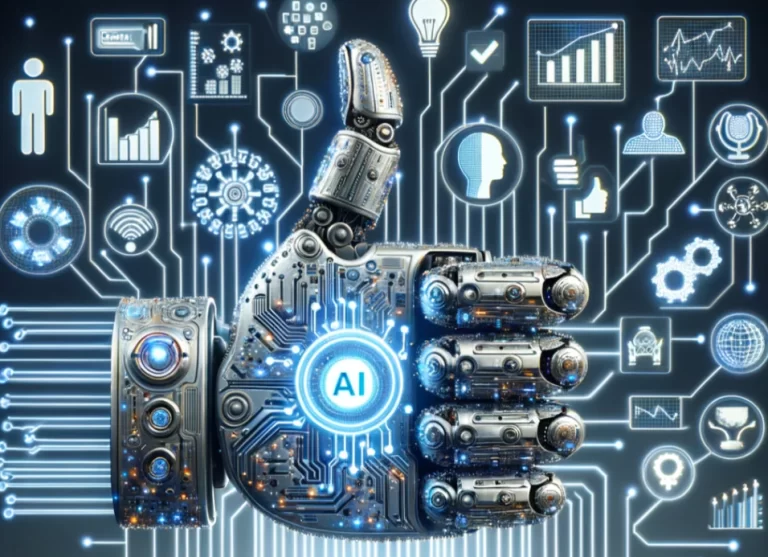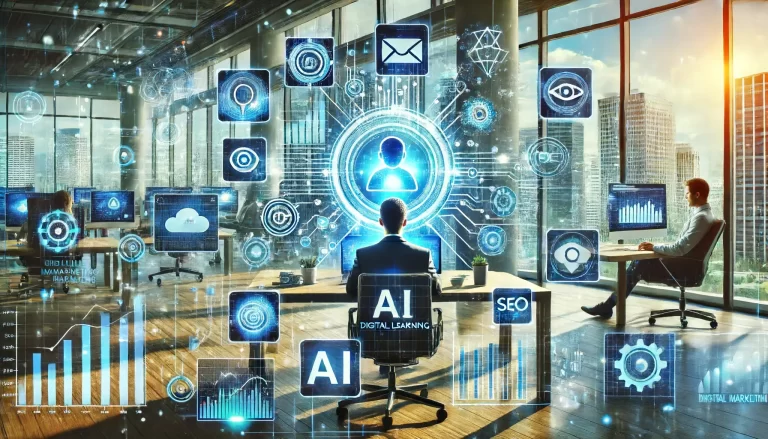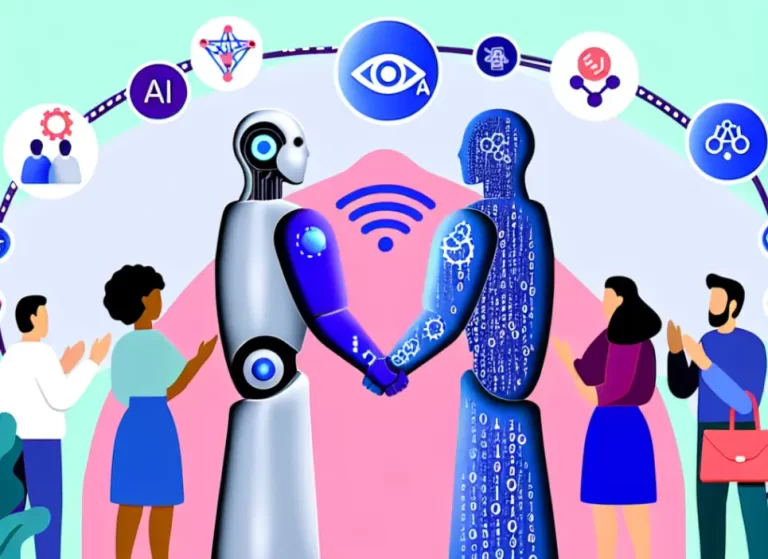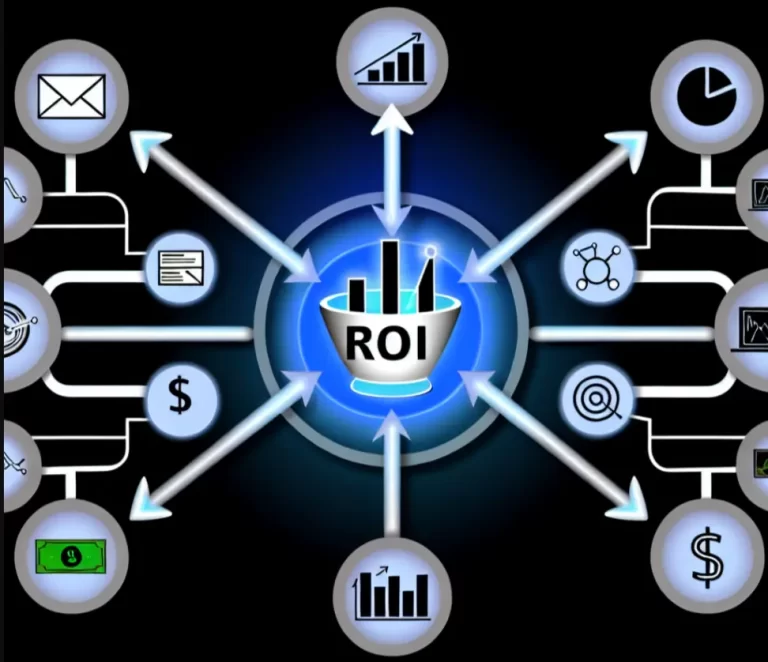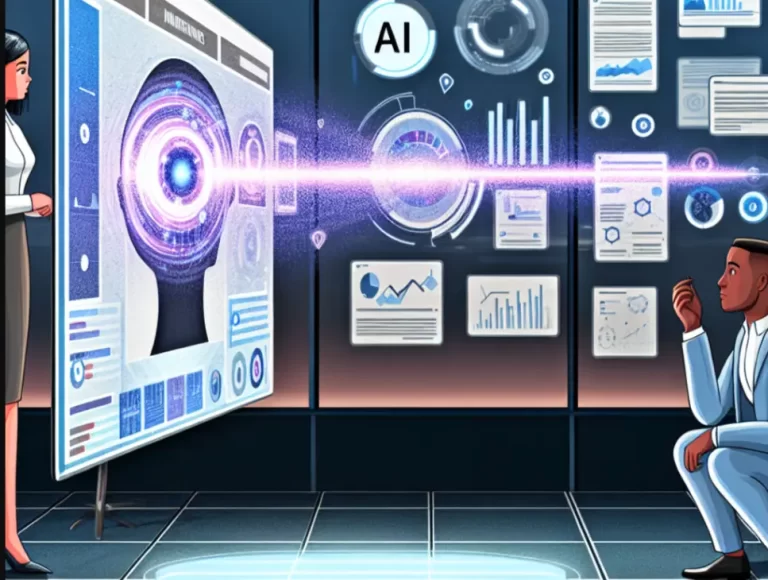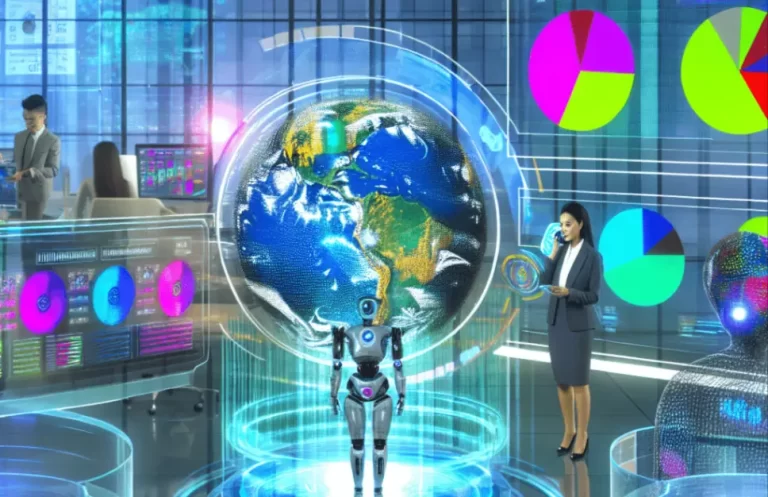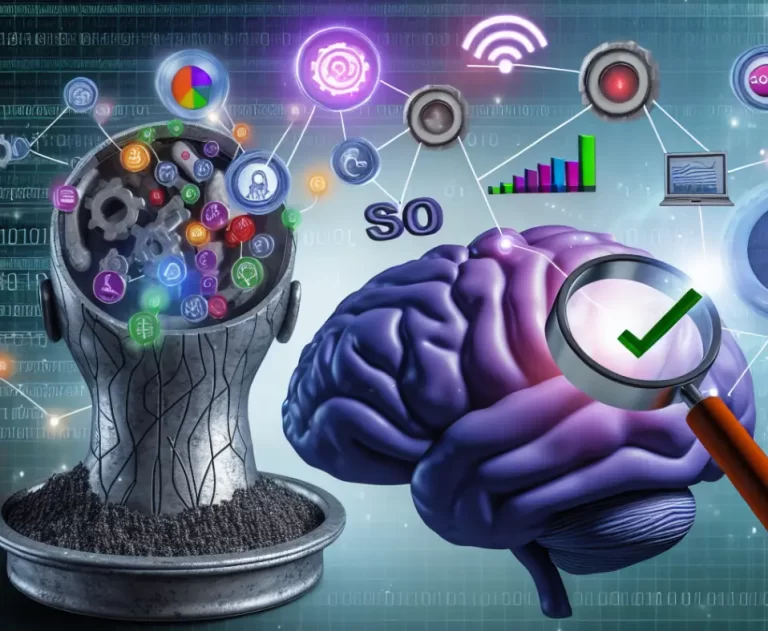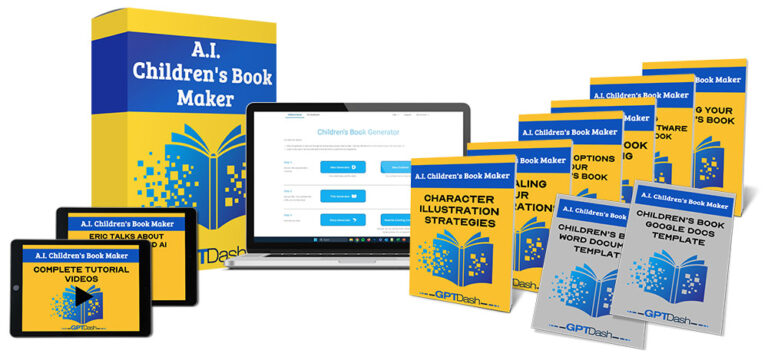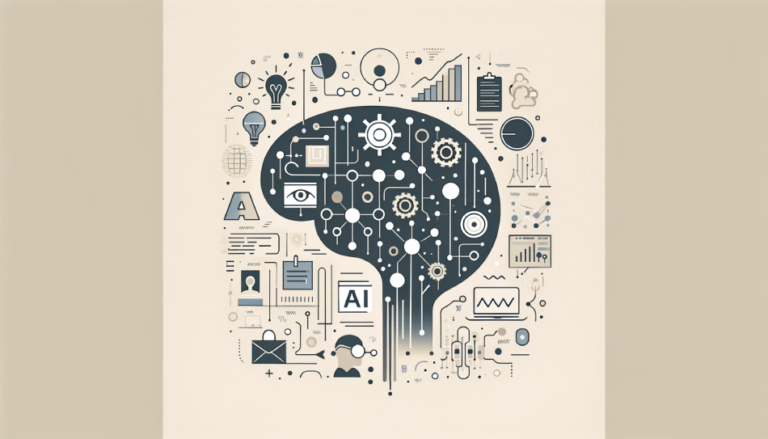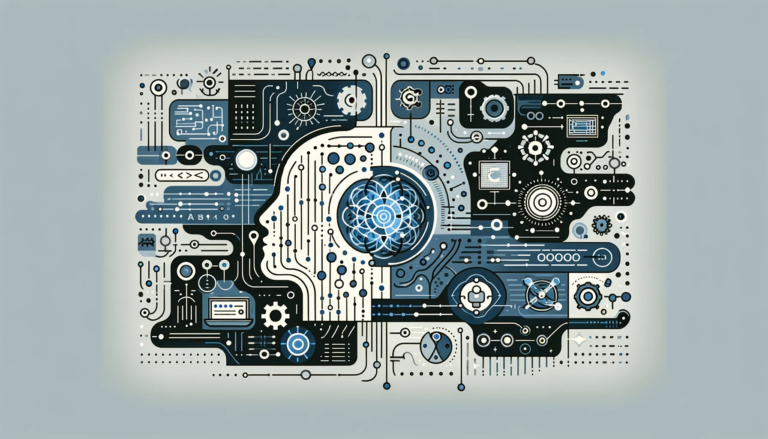AI in Automation
Explore the role of AI in automating repetitive tasks, reducing operational costs, and increasing efficiency
 Artificial Intelligence (AI) has emerged as a transformative force in various industries, revolutionizing the way businesses operate and achieve their objectives. One of the key areas where AI has made significant advancements is in automating repetitive tasks, reducing operational costs, and increasing efficiency. This article delves into the role of AI in driving automation, exploring how it impacts repetitive tasks and contributes to streamlining business operations. Additionally, we will examine the benefits of AI-driven automation in reducing human error, improving efficiency, and ultimately transforming the way organizations function. As AI continues to evolve and grow, it is crucial for businesses to understand and embrace its potential to stay competitive in today’s fast-paced and technology-driven landscape.
Artificial Intelligence (AI) has emerged as a transformative force in various industries, revolutionizing the way businesses operate and achieve their objectives. One of the key areas where AI has made significant advancements is in automating repetitive tasks, reducing operational costs, and increasing efficiency. This article delves into the role of AI in driving automation, exploring how it impacts repetitive tasks and contributes to streamlining business operations. Additionally, we will examine the benefits of AI-driven automation in reducing human error, improving efficiency, and ultimately transforming the way organizations function. As AI continues to evolve and grow, it is crucial for businesses to understand and embrace its potential to stay competitive in today’s fast-paced and technology-driven landscape.
Exploring the Role of AI in Automation
AI plays a critical role in automating tasks that were previously performed by humans manually. By leveraging advanced algorithms and data, AI enables machines to learn and perform repetitive tasks with precision and speed. This frees up human resources and allows businesses to focus on more strategic and creative endeavors.
The Impact of AI on Repetitive Tasks
Identifying repetitive tasks in business operations.
Repetitive tasks are those mundane and monotonous activities that are often time-consuming and prone to human error. They could include data entry, invoice processing, customer support inquiries, and more. These tasks are prime candidates for automation, as they can be easily defined and standardized.
How AI Automates Repetitive Tasks
AI automates repetitive tasks through machine learning algorithms. By analyzing patterns and data, AI systems can understand the steps involved in a particular task and replicate them accurately. This reduces the need for manual intervention, improves accuracy, and speeds up the overall process.
Benefits of AI-driven automation in reducing human error.
One of the significant advantages of using AI to automate repetitive tasks is the reduction in human error. Unlike humans, AI systems do not get fatigued or distracted, resulting in consistent and error-free performance. This not only improves the quality of output but also eliminates costly mistakes that can occur due to human fallibility.
Reducing Operational Costs Through AI Automation
Identifying cost-saving opportunities with AI automation.
AI automation presents several cost-saving opportunities for businesses. By automating repetitive tasks, companies can significantly reduce labor costs associated with manual work. Additionally, AI systems can optimize processes, identify inefficiencies, and suggest improvements, leading to cost reductions in various operational areas.
Streamlining processes through AI automation.
AI automation streamlines processes by eliminating bottlenecks and reducing the time required to perform tasks. It enables businesses to streamline workflows, allocate resources effectively, and enhance productivity. By automating processes, organizations can achieve faster turnaround times, improve customer satisfaction, and ultimately reduce operational costs.
Case Studies: Cost Reduction Achieved Through AI Automation
Numerous organizations have successfully implemented AI automation to reduce operational costs. For example, a retail company automated its inventory management using AI algorithms, resulting in reduced stockouts and inventory holding costs. Another case study showcases how a transportation company implemented AI-based route optimization, leading to fuel savings and improved delivery efficiency.
Enhancing Efficiency with AI-Driven Solutions
The role of AI in improving operational efficiency.
AI plays a pivotal role in improving operational efficiency by enabling businesses to automate tasks, analyze data, and make data-driven decisions. By leveraging AI-driven solutions, organizations can optimize resource allocation, minimize wastage, and respond quickly to changing market conditions, resulting in improved overall efficiency.
AI-powered Tools and Technologies For Efficiency Enhancement
There is a wide array of AI-powered tools and technologies available that can enhance efficiency in different business areas. For example, chatbots powered by natural language processing can handle customer queries round the clock, reducing response times and improving customer satisfaction. AI-driven analytics platforms enable businesses to gain valuable insights from massive volumes of data, allowing for better decision-making and process optimization.
Real-World Examples: Efficiency Gains Through AI Automation
Several companies have witnessed significant efficiency gains through the implementation of AI automation. For instance, a manufacturing company used AI-powered predictive maintenance to schedule maintenance activities, reducing downtime and maximizing productivity. Another example is a healthcare provider that utilized AI algorithms to analyze patient data, leading to more accurate diagnoses and personalized treatment plans.
In conclusion, AI automation has a profound impact on businesses by automating repetitive tasks, reducing operational costs, and increasing efficiency. By harnessing the power of AI, organizations can achieve higher productivity, better accuracy, and improved cost-effectiveness, ultimately gaining a competitive edge in the market.
Key Industries Benefiting From AI Automation
AI automation in manufacturing and logistics.
AI automation has revolutionized the manufacturing and logistics industries by streamlining operations and increasing productivity. From assembly line robots to autonomous delivery vehicles, AI-powered machines can perform repetitive tasks with precision and efficiency. This not only reduces human error but also allows businesses to scale their operations and meet growing demands. With AI automation, manufacturers and logistics companies can optimize their supply chain, minimize costs, and improve overall operational efficiency.
The Impact of AI on Healthcare and Medical Operations
In the healthcare sector, AI automation has the potential to transform medical operations and improve patient care. Through machine learning algorithms, AI systems can process vast amounts of patient data to aid in diagnosis, drug discovery, and treatment planning. AI-powered robots can assist in surgery, providing more precise and minimally invasive procedures. Additionally, AI chatbots and virtual assistants can enhance patient interactions and provide round-the-clock support. By automating repetitive tasks and analyzing complex medical data, AI can help medical professionals deliver accurate and personalized care more efficiently.
AI-Driven Automation in Customer Service and Support
Customer service and support have greatly benefited from AI automation. Chatbots and virtual assistants can handle customer inquiries and provide real-time assistance, ensuring prompt and efficient responses. These AI systems are trained to understand and mimic human conversation, offering personalized recommendations and solutions. By automating routine customer service tasks, businesses can reduce response times, improve customer satisfaction, and free up human agents to focus on more complex and specialized customer needs.
Challenges and Considerations in Implementing AI Automation
Ethical considerations and potential job displacement.
While AI automation offers numerous advantages, ethical considerations and potential job displacement cannot be ignored. The widespread adoption of AI technologies may lead to the loss of certain job roles, requiring organizations to reskill or reallocate their workforce. Additionally, ethical challenges arise when AI systems make decisions that can impact individuals or society. It is crucial to develop transparent and accountable AI algorithms and ensure that automation benefits society as a whole.
Data Privacy and Security Concerns in AI Automation
AI automation relies heavily on data, which raises concerns about data privacy and security. Organizations must handle data responsibly, ensuring compliance with privacy regulations and implementing robust cybersecurity measures. Safeguarding sensitive information and protecting against data breaches should be a top priority when implementing AI automation.
Overcoming technical and implementation challenges
Implementing AI Automation Can Be Complex and Challenging
Organizations need to invest in the right infrastructure, AI algorithms, and data management systems. Training AI models and integrating AI systems into existing workflows may require technical expertise and careful planning. It is essential to thoroughly understand the specific requirements and limitations of AI technology and work closely with experts to ensure the successful implementation of AI automation.
Future Prospects and Advancements in AI Automation
Emerging trends in AI automation.
The field of AI automation is continually evolving, and several emerging trends are shaping its future. These include the integration of AI with Internet of Things (IoT) devices, the advancement of natural language processing for better human-machine interactions, and the utilization of AI-powered predictive analytics for proactive decision-making. Additionally, the development of explainable AI models and the focus on ethical AI principles will drive the responsible adoption of AI automation.
Potential Applications of AI in Future Automation
The potential applications of AI in future automation are vast. AI could be used to automate complex data analysis in finance, optimize energy consumption in smart grids, or enhance cybersecurity measures to combat evolving threats. As AI technologies continue to advance, businesses across industries will find new and innovative ways to leverage automation for improved efficiency and competitiveness.
Impact of AI Advancements on Business Operations
The advancements in AI automation will undoubtedly have a profound impact on business operations. With increased efficiency and reduced costs, organizations can allocate resources more effectively and focus on higher-value tasks. AI automation can also lead to enhanced decision-making by providing data-driven insights and predictive analytics. By embracing AI, businesses can stay ahead of the curve and adapt to the fast-paced digital landscape.
Conclusion: Embracing the Role of AI in Transforming Business Operations
AI automation is redefining how businesses operate, enabling them to automate repetitive tasks, reduce operational costs, and increase overall efficiency. Industries such as manufacturing, logistics, healthcare, and customer service are already benefitting from the implementation of AI automation. However, challenges such as ethical considerations, data privacy, and implementation complexities need to be addressed. Looking forward, the future prospects for AI automation are promising, with emerging trends and potential applications reshaping industries and revolutionizing business operations. By embracing AI, organizations can unlock new opportunities and transform the way they work in this digital age. So, let’s welcome our AI overlords with open arms and a sense of excitement for a more automated and efficient future!
In conclusion, the role of AI in automating repetitive tasks, reducing operational costs, and increasing efficiency cannot be overstated. By harnessing the power of AI-driven automation, businesses can streamline their processes, minimize human error, and achieve significant cost savings. While there may be challenges and considerations in implementing AI automation, the potential benefits far outweigh the obstacles. As AI continues to advance and new technologies emerge, it is imperative for organizations to embrace this transformative technology to stay competitive and thrive in today’s ever-evolving business landscape. By leveraging AI, businesses can revolutionize their operations and unlock new levels of productivity and success.
FAQ
AI automates repetitive tasks through the use of algorithms and machine learning. By analyzing patterns and data, AI systems can learn to perform tasks that are typically time-consuming and repetitive for humans. This automation frees up valuable human resources and allows for more efficient and accurate completion of these tasks.
AI automation has the potential to benefit a wide range of industries. Manufacturing and logistics industries can streamline their supply chain processes. Healthcare organizations can improve medical operations and patient care. Customer service and support industries can enhance their responsiveness and efficiency. Ultimately, any industry that deals with repetitive tasks and data processing can benefit from AI automation.
While AI automation offers numerous benefits, there are potential downsides to consider. Ethical considerations arise from the potential job displacement caused by automation. There are also concerns related to data privacy and security, as AI systems often require access to large amounts of sensitive data. Additionally, technical and implementation challenges may arise, requiring careful planning and expertise to overcome.
The future of AI automation is promising. As technology advances, AI is expected to play an even larger role in transforming business operations. Emerging trends, such as robotic process automation (RPA) and cognitive computing, will further enhance the capabilities of AI automation. Organizations can expect increased efficiency, improved decision-making, and the ability to tackle more complex tasks through continuous advancements and innovation in the field of AI automation.




